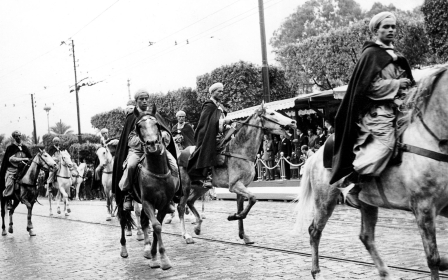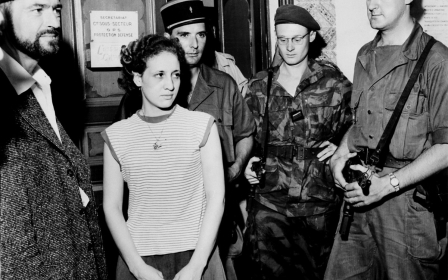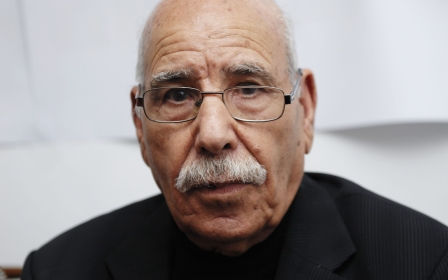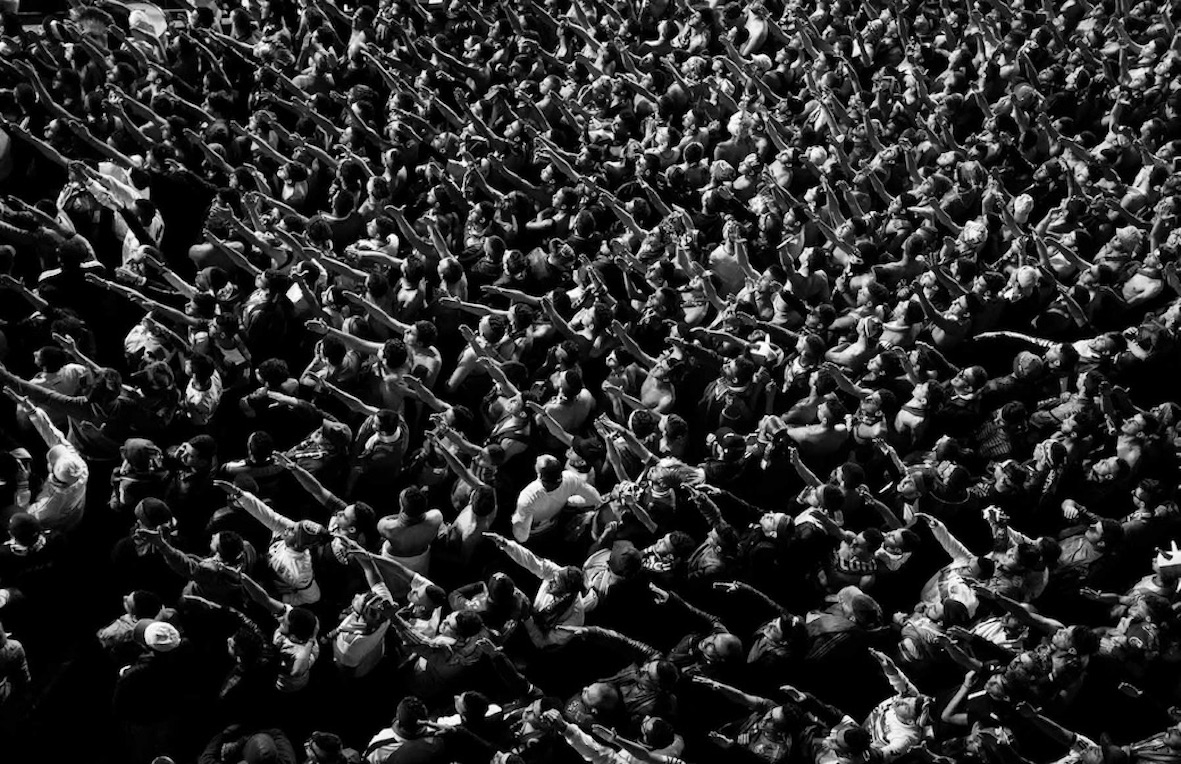
In pictures: Kho, behind the scenes of Algeria’s Hirak protests
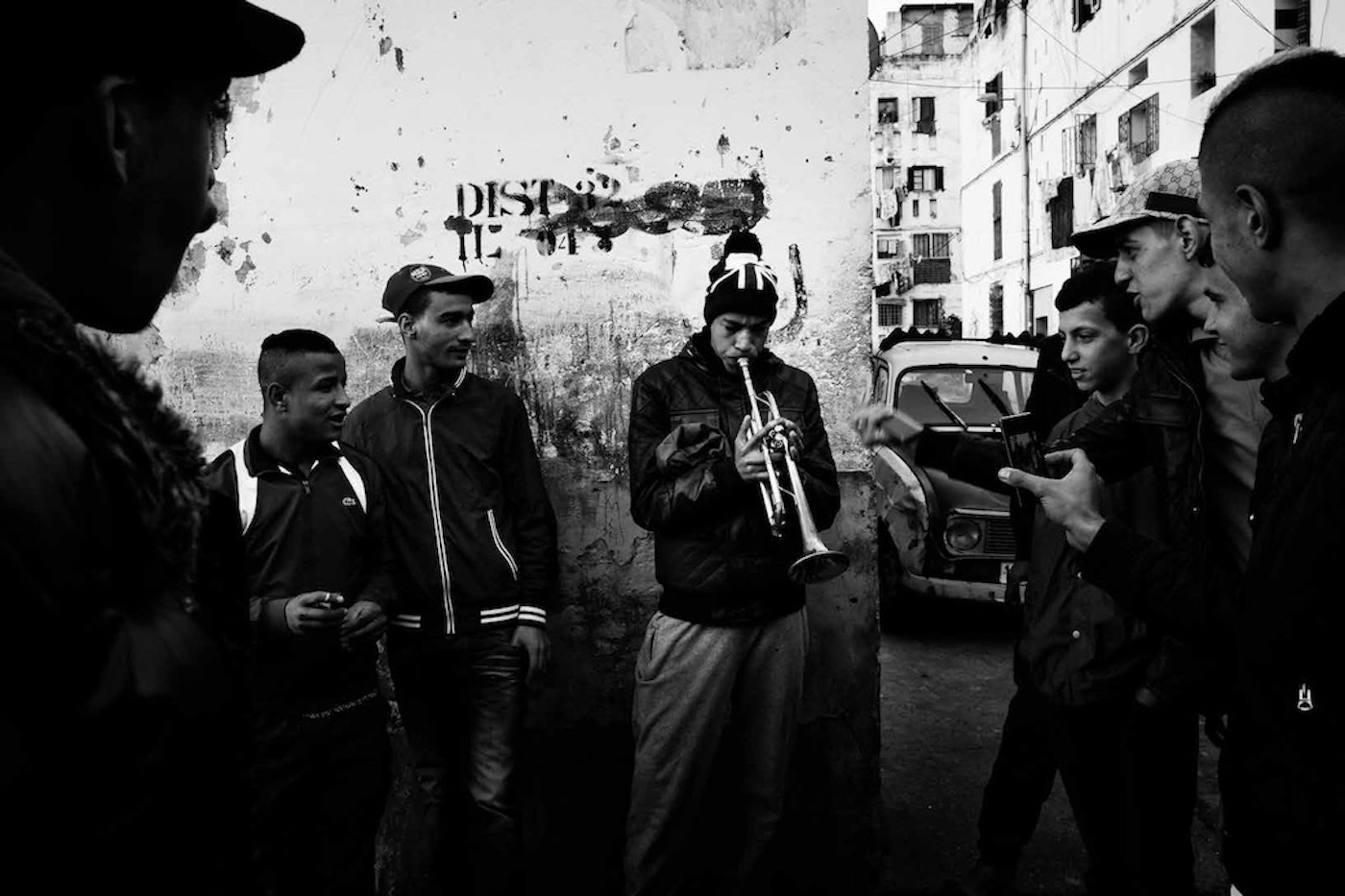
Published in September 2021 by éditions NO, Kho (the shortened version of the word "Khouya", or "brother" in Algiers slang) looks back at photographer Romain Laurendeau’s long stay in Algiers and the work that earned him the first prize for the reporting category of the 2020 World Press Photo competition.
From working-class neighbourhoods to the stands of the Algiers football stadium, and covering the fleeting moment of freedom that some young Algerians were lucky enough to experience, Laurendeau chronicles the lives of the youth he would eventually befriend. (All photos courtesy of Romain Laurendeau)
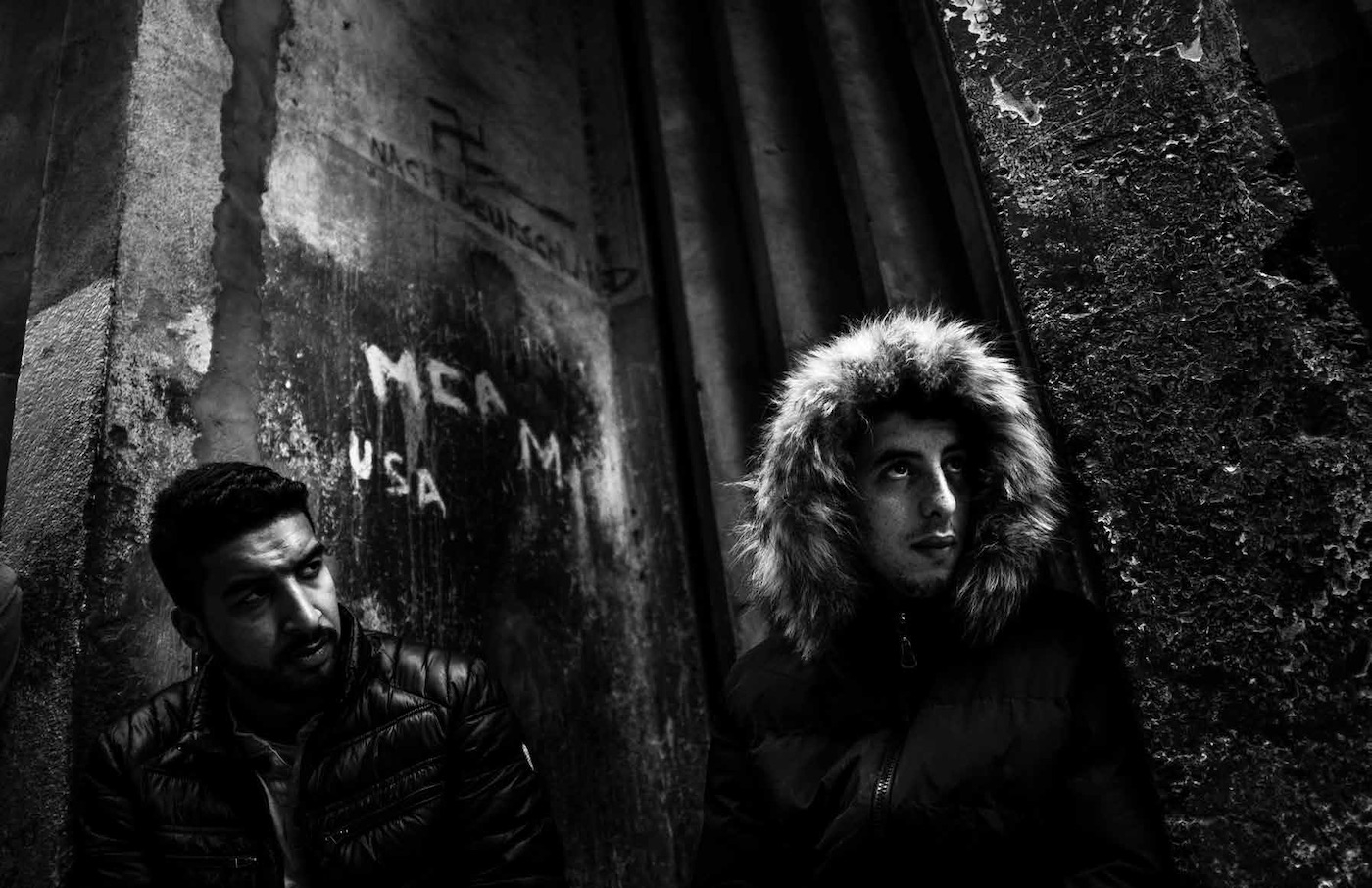
In his work, the photographer empathetically recounts both their despair and desire for a normal life, if not a better one. "Here I am chatting with Omar, a friend I was just introduced to. ‘Welcome to your home’ – these few words inscribed in a square at the heart of Bab El Oued resonate. I don’t know if this small piece of concrete will stay with me forever."
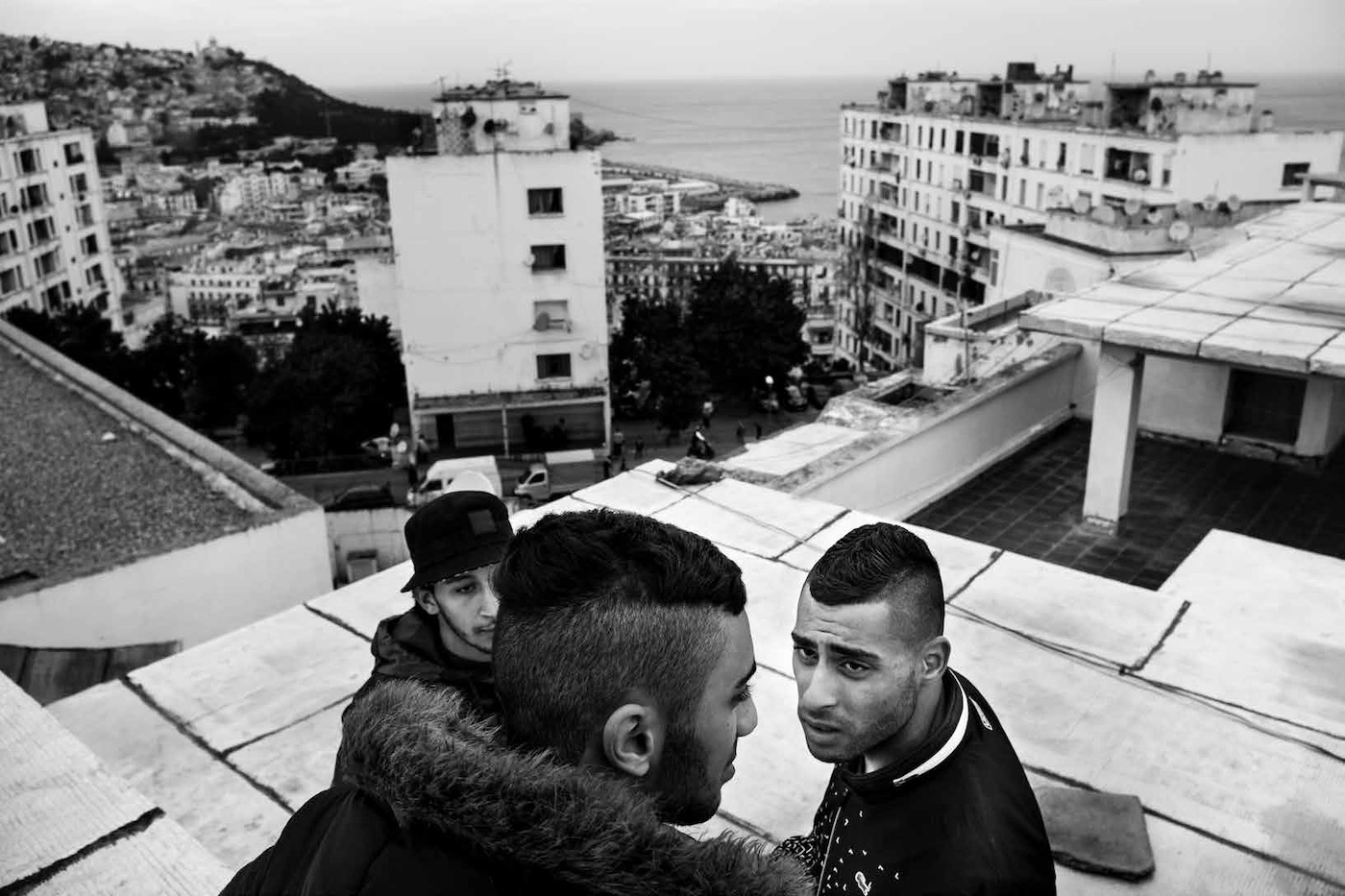
"Brahim sometimes takes me outside of the central square for a walk around Bab El Oued. He seems to know everyone. We take a break by the sea and the pool to think about ‘the other side’. He tells me about the beach and the happy swims of his childhood. Soapbox races on top of an old fridge; bike rides; hide-and-seek games on the gangways of cruise ships: he shows me the places where he was once happy. Like this street corner with a few benches. As a kid, he used to meet his friends there – Daim, Toto... The sparkle in his eyes disappears. ‘Daim is in prison, Toto has gone mad... I’m the only one left.’”
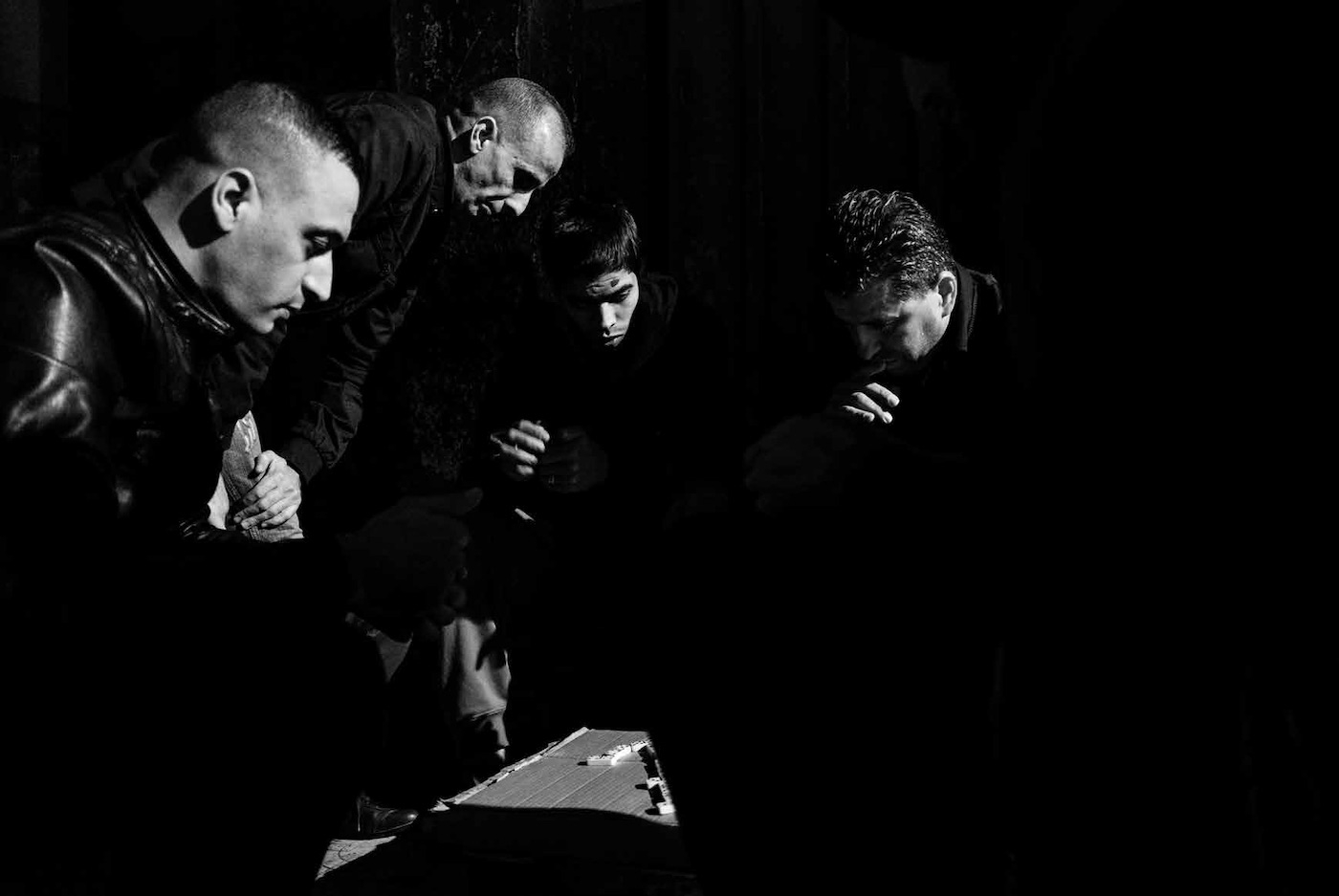
"I’ve just arrived. I don’t feel the sense of fear I would have felt if I had been born and grown up here. I feel like an idiot. An idiot who is daring – actually – since I am coming here with my camera as both a means and as an end. I’m keeping myself as far as possible from moralising judgements. Knowing isn’t enough. I need to truly live to tell the story. Not just drugs and violence, not just the history of walls. But everything – daily life.
"[The neighbourhood kingpin] asks me about my family, whether I’m married, if I have any siblings. About my parents, too. He learns that I never met my father, so he asks after my mother. ‘She’s not too worried knowing that you’re alone, so far away from her’?"
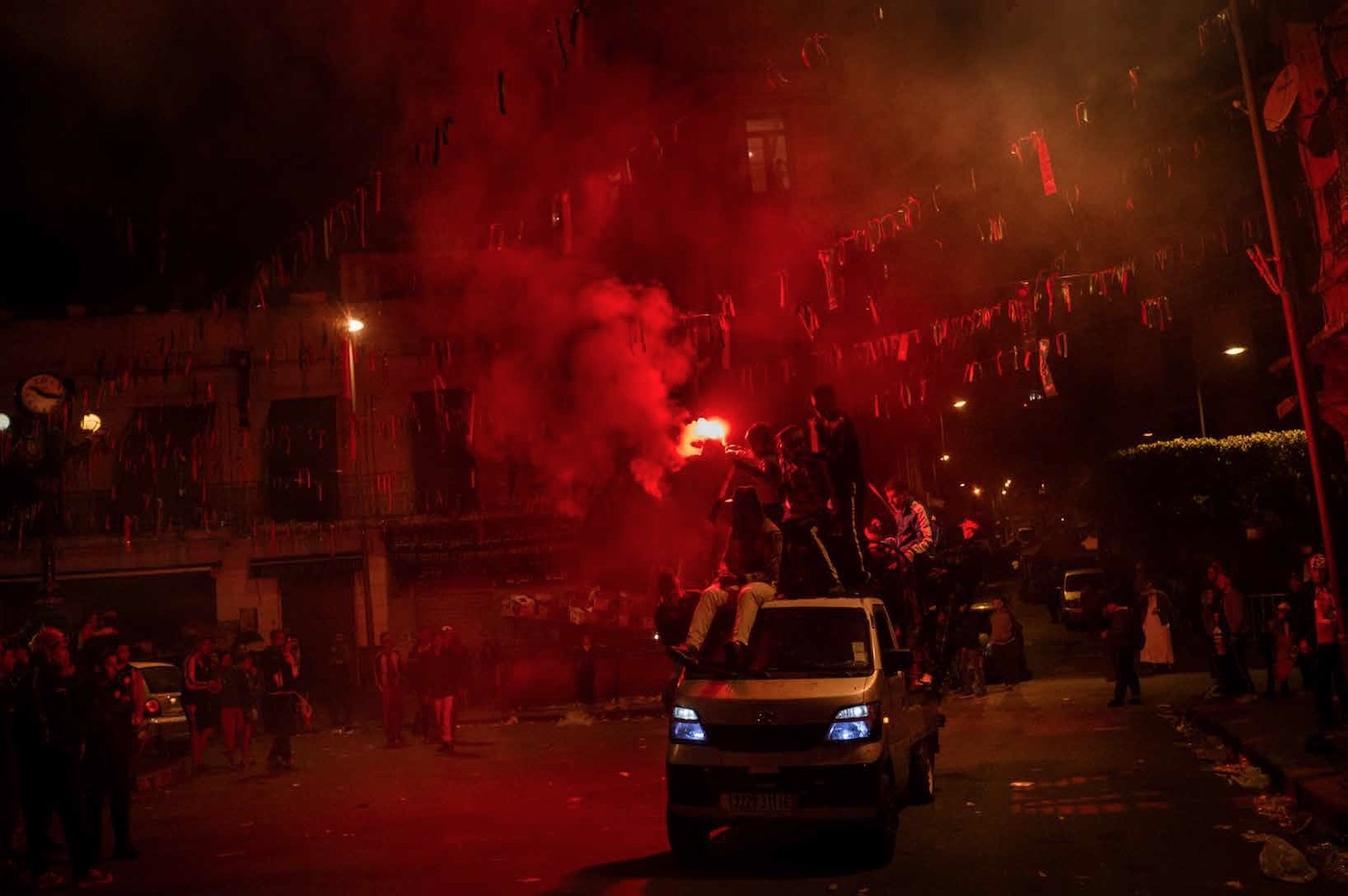
"Setting off distress flares is called ‘cracking’. It’s a tradition for soccer fans in Algeria. Soccer is everywhere in the neighbourhoods. People wearing jerseys; intense matches on small pitches. And then there are the more subtle things, like the coloured bracelets they wear on their wrists. Each colour corresponds to the team they support. A kind of pledge of allegiance. An extension and affirmation of their identity.
"In the central square, stories about stadiums often come up. Stories of violence, of chants, of challenges to authority. Omar and Brahim don't want to take me there for fear that something will happen to me. They are not used to seeing a white Frenchman in the stands. They are suspicious, as many are, of anything out of the ordinary."
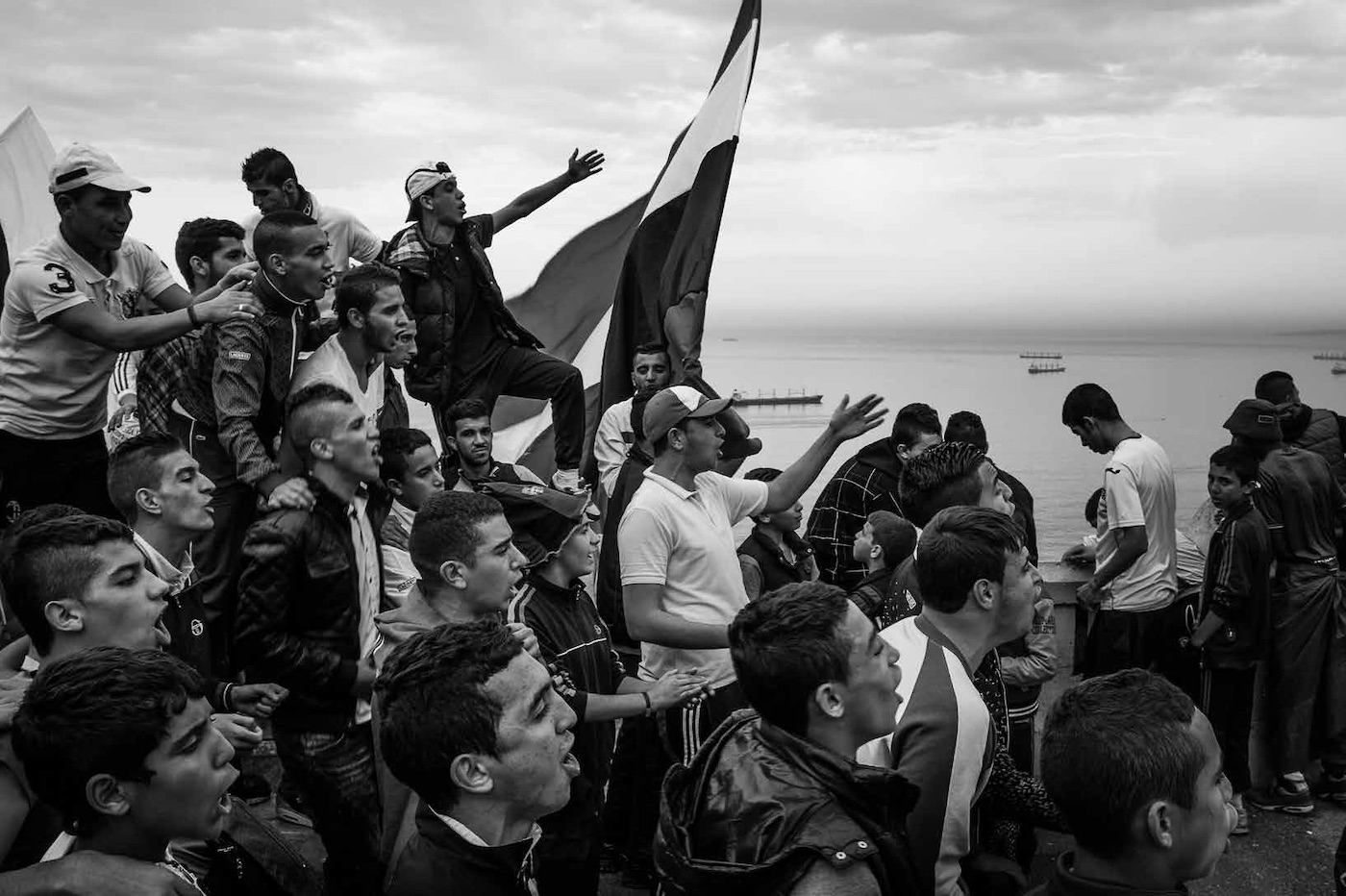
"Notre Dame of Africa is a few steps away. A majestic church overlooking the port of Algiers. It’s one of the few in Algeria that still practise Catholic mass. Today, there is a crowd at the entryway. But the young people are not there for prayer, or at least not to the same God. They are there to worship the Gods of soccer. I realize that it’s the first time since I’ve been here that there is such a crowd in the streets, since it’s illegal to protest or to gather in large crowds in Algiers.
"The last few months spent in the square had almost made me forget the energy of young people around the world. And it’s found here, at the foot of the church that offers a distant and partial view of the soccer stadium. Like many other things in Algeria, the game takes place before empty stands due to the violence of the previous matches.
"The chanting becomes louder and louder as game time approaches. Arms are stretched out in unison facing the opponent. Flags are flying. The atmosphere is electric. And then, there’s a clamour, loud cracks. Red distress signals tear apart the night, which has just begun to fall. The young people howl, as if swept away by the madness of a strange potion as wild as it is fleeting. They follow the match, but that’s not the most important thing. They are united. Together, they are able to let off steam. Together, they can finally exist."
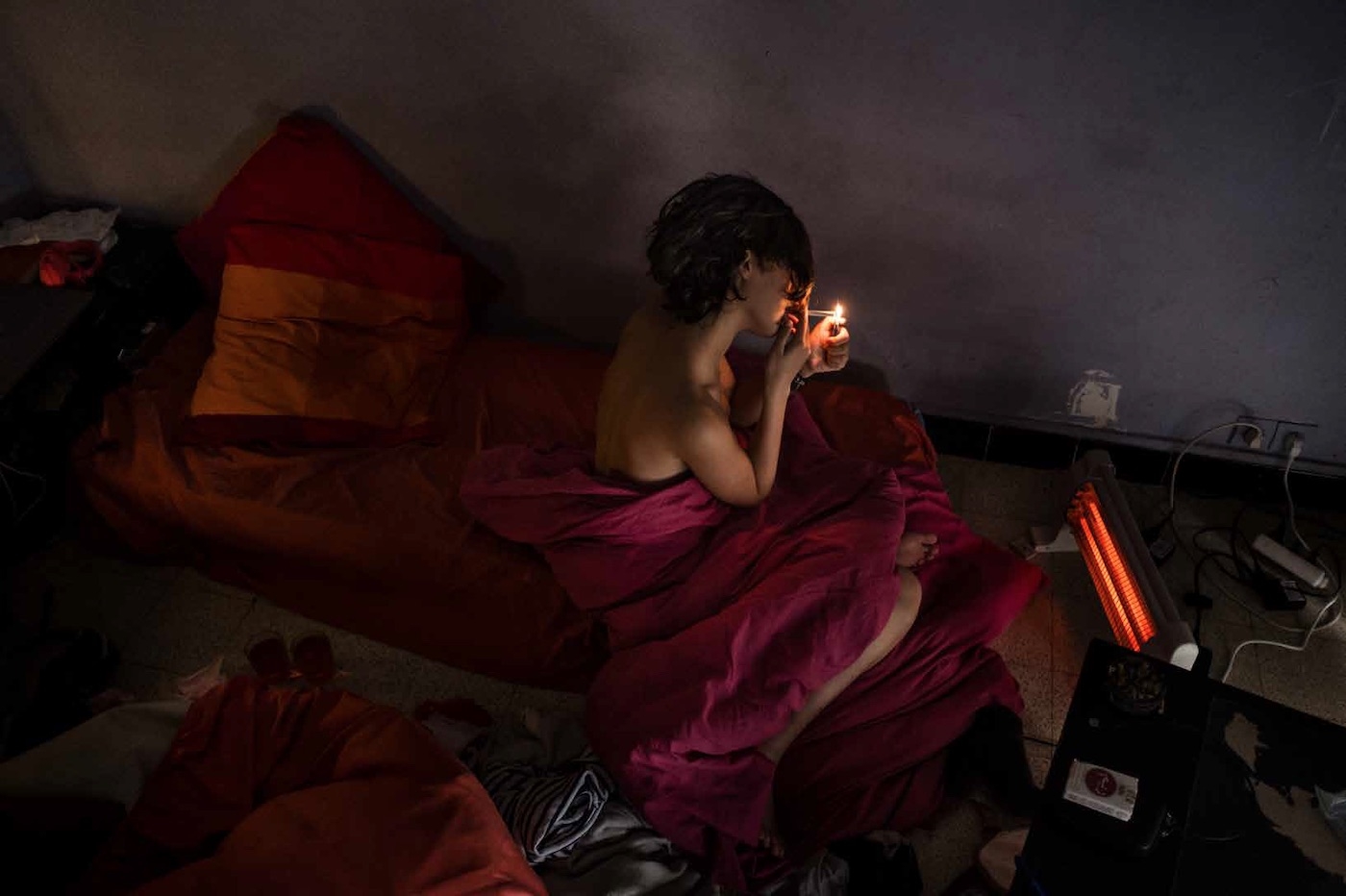
"The music is loud this afternoon. That’s the norm in this shared flat perched on the top of a tower in Algiers. There are people in every room. They are dancing, laughing. Drinking, too. Sitting on the balcony, I chat calmly with Roujer. It’s not his real name, but a nickname for pretty much every redhead in Algeria. For him, this apartment is like treasure, a space where he can pick apart all of the worries that he finds in his neighbourhood. He talks about the stairwells, the small terraces. It’s not enough. He just wants to be able to hang out with his friends without being judged. To smell a whiff of freedom, just for a few hours. And flirt with his girlfriend as well.
"Like all young people, he just wants to be free and to live simply. ‘This is my diki,’ he says. Diki: a secret word, a code. Usually when it is spoken, the girls pretend to not understand and the boys start to cackle. The operative term has a pejorative connotation since it’s linked to alcohol, drugs and especially sex. And here, sex isn’t discussed: it’s taboo."
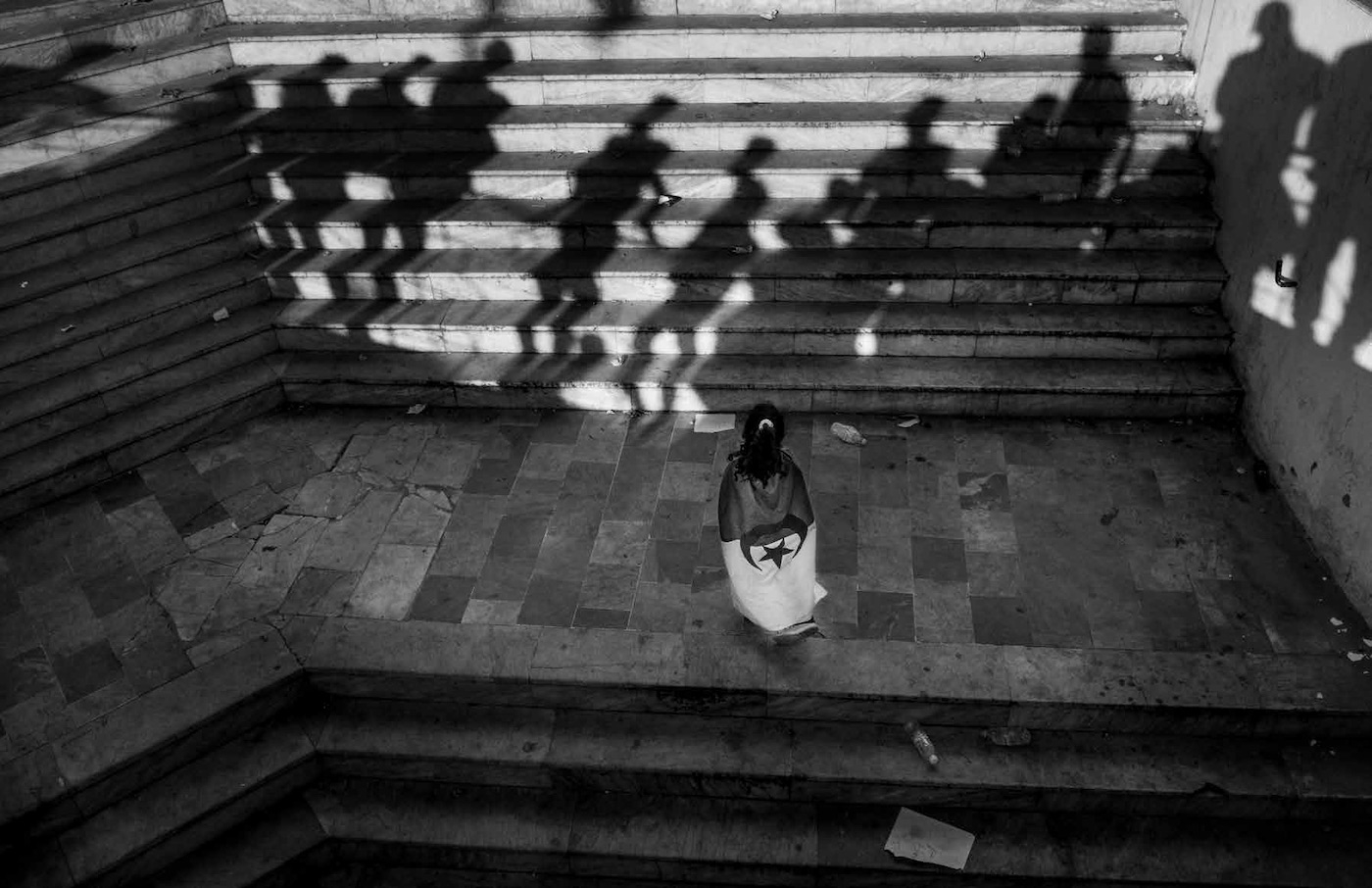
"The joy lasts for hours in the stadium. The presentation of the trophy, the players' victory lap. But outside, it’s not the same. The cops are corralling the fans. They don’t want any crowds outside the stadium. In Belcourt, the party lasts more than a week. Every night, the neighbourhood lights up with red distress signals set off to celebrate the occasion. They sing, shout, blockade the streets. Eventually, the lights lose their brightness, the horns become silent and life resumes its course. Like before, like now, the same thing every day.
"Two years later, in February 2019, young people from these same working-class neighbourhoods take to the streets to the sound of the soccer chants that allow everyone to participate in the ‘hirak,’ the largest protest movement Algeria has seen in decades."
This article is a translation of a story originally published on Middle East Eye's French website.
Middle East Eye delivers independent and unrivalled coverage and analysis of the Middle East, North Africa and beyond. To learn more about republishing this content and the associated fees, please fill out this form. More about MEE can be found here.


